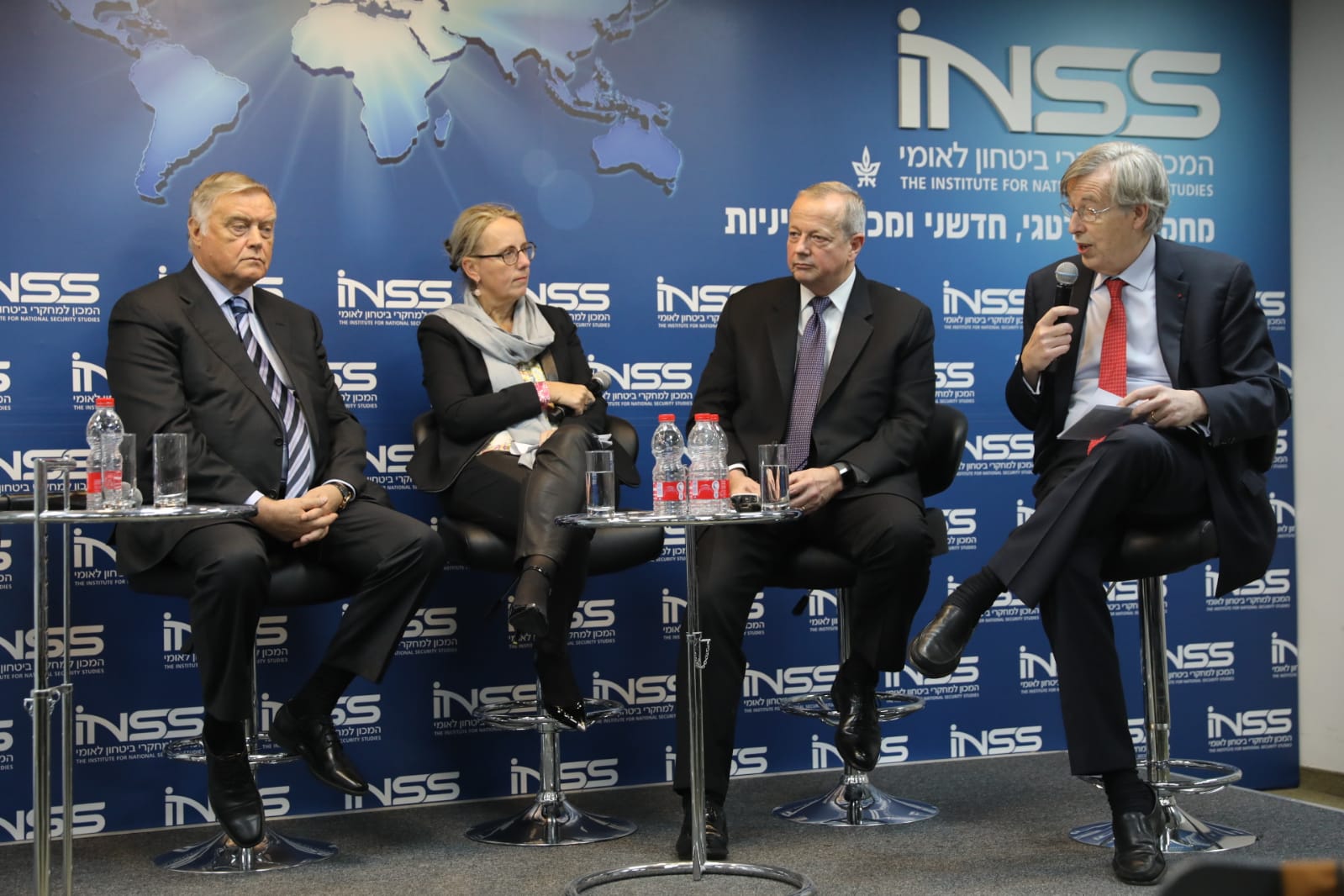
Moderator: Prof. François Heisbourg I Gen. (ret.) John R. Allen I H.E Amb. Hélène le Gal, French Ambassador to Israel I Dr. Vladimir Yakunin
The panel opened with a discussion of America’s ostensibly decreasing role in the region. Has the US definitely decided to play a second-order role in the US? Is it a choice? There is arguably more continuity between Obama and Trump than either would likely want to admit.
President Obama’s approach was described as less of an abandonment of the region than a belief that the region needed to find a new equilibrium. He was elected on a campaign to get the US out of two wars. And indeed over the past few years, both through Obama and Trump, there has been a major shift in the US role in the region. But the US commitment to Israel will always remain at the heart of American policy. Much of what Trump has done in Syria has been an invigoration of Obama’s policy in Iraq and Syria. The US has decided to withdraw its special operations forces from northeast Syria, so the Americans’ skin in the game has gone away. This has undermined the European capacity to have a voice in the process, even though many in America still would like to see Europe retain a crucial voice. Withdrawing now removes the U.S. ability to help stabilize the population. The reconstruction of Syria will be somewhere between $4-6 billion, and before we hand it all over to the Assad regime, we have a responsibility to ensure Syrian citizens can go home.
For its part, Europe does not define itself as a military power, and in the Middle East we know that military powers are dominant, whether they are state actors or non-state actors. But still, Europe can play a role. For example, take the economies of the Middle Eastern countries – neither Russia nor the US are their main partners. The European Union can also be a model, as the Middle East is the only region in the world without a mechanism for integrating economies. Third, the EU can play a role in assisting states to regain their footing and security – think of places like Iraq and Syria. Finally, the EU can give international guarantees to regional players.
The situation in the region as it stands today is a deeply uncomfortable one for Europe, partly because ISIS is still in Syria and partly because of Iran’s destabilizing behavior. Europe is also especially concerned by the fact that an entire generation has been lost across the region. There is a need for a comprehensive political solution in Syria, which will allow for the refugees to return.
The question of Russia’s role in the region was discussed. How did Russia come to play such a dominant role in the region? Was this a carefully planned process or was it a matter of merely seizing an opportunity? The Russian analyst noted that Russia carefully evaluated the regional situation, and was particularly concerned by the fact that more than 5,000 fighters for the so-called Islamic State (ISIS) were of Russian origin. From Russia’s standpoint, it sought to work with the West but was rebuffed. This version of events was contested by the American panelist, who also took issue with the claim that Russia had never intended to preserve the Assad regime, but rather sought merely to fight terrorist groups in Syria.
Indeed, the US entered the war against IS originally in Iraq, and only later took the coalition to the fight in Syria. America never agreed with Assad’s definition of terrorism, a definition which was supported by Russia. Assad’s air power was focused more on the civilian population, i.e., on people who were not terrorists but potential partners in the political process. In the end, while the coalition was preoccupied with IS, Russia’s involvement enabled entrenchment of Iran in Syria, strengthened Hezbollah, and eliminated accountability for a mass murderer.
From the American standpoint, there is a strong need to oppose Iran in this region, to work with Russia to stop the violence in Syria, and to support the Sunni regimes in both their military capacities and their governance. And when it comes to the prospect of reconstruction in Syria, the coalition should insist that not a penny will go to the regime in Damascus until the latter issues guarantees that it will allow citizens to return home and live in security.
Participants agreed that while China had funds invested in institutions such as the World Bank and the International Monetary Fund, the rising power’s tendency to invest in “a sure thing” likely meant it would not assume a significant financial role in Syrian reconstruction, or in the weak states of the region more generally anytime soon.


